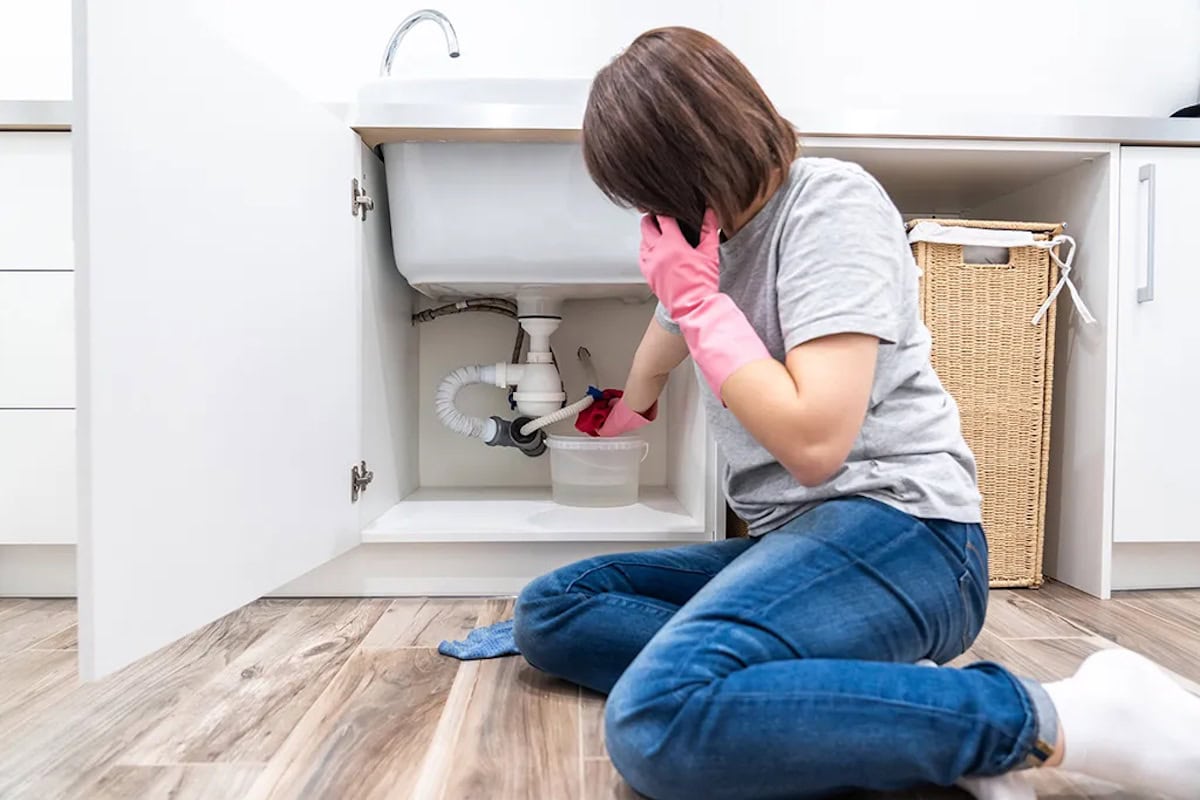Table of Contents
- Identify the Problem
- Shut Off the Water
- Contain the Damage
- Call a Professional Plumber
- Temporary Fixes
- Preventing Future Emergencies
Identify the Problem
Plumbing emergencies can strike at any time, causing significant stress and potential damage to your home. Knowing how to respond quickly and effectively can help minimize damage and make the situation more manageable. Common plumbing emergencies include burst pipes, severe leaks, clogged drains, and overflowing toilets. By understanding the nature of the issue, you can take the right steps to mitigate the damage.
Shut Off the Water
Main Water Shutoff Valve
The most crucial step in any plumbing emergency is to shut off the water supply to prevent further damage. Locate your home’s main water shutoff valve, typically found near the water meter or where the main water line enters the house. Turn the valve clockwise to stop the water flow. Ensure all household members know where the valve is and how to operate it in case of an emergency.
Fixture-Specific Shutoff Valves
In some cases, you may only need to shut off the water supply to a specific fixture, such as a sink or toilet. Fixture-specific shutoff valves are typically located beneath the fixture. Turning these valves clockwise will stop the water flow to that particular fixture, allowing you to address the problem without shutting off the entire house’s water supply.
Contain the Damage
Once the water is shut off, take steps to contain and minimize the damage. Use buckets, towels, or mops to soak up excess water and prevent it from spreading to other areas of your home. If the leak is severe, consider using a wet/dry vacuum to quickly remove standing water. This will help prevent further damage to your floors, walls, and belongings.
Call a Professional Plumber
After you have contained the situation, it’s essential to call a professional plumber to assess and repair the damage. Plumbing emergencies often require specialized knowledge and tools, and attempting to fix the problem yourself can sometimes make things worse. Contacting a professional ensures that the repair is done correctly and safely. Our team at Anchor Plumbing offers 24/7 emergency service to handle any plumbing emergency quickly and efficiently.
Temporary Fixes
While waiting for the plumber to arrive, you can apply temporary fixes to prevent further damage. For example:
- Leaking Pipe: Use pipe tape or a pipe clamp to temporarily seal the leak.
- Clogged Drain: Avoid chemical drain cleaners, which can damage your pipes. Instead, use a plunger or a drain snake to remove the blockage.
These temporary fixes can help stabilize the situation until a professional can provide a permanent solution.
Preventing Future Emergencies
Regular Maintenance
Regular maintenance is key to preventing plumbing emergencies. Schedule annual inspections with a professional plumber to identify and address potential issues before they become major problems. Regularly check for leaks, inspect your water heater, and clean your drains to keep your plumbing system in good condition.
Know Your Plumbing System
Understanding your home’s plumbing system can help you respond more effectively in an emergency. Familiarize yourself with the location of shutoff valves, learn how to read your water meter, and know the signs of potential plumbing issues, such as low water pressure, slow drains, and unusual noises.
Install Preventative Devices
Consider installing preventative devices, such as water leak detectors and automatic shutoff valves. These devices can alert you to leaks and automatically shut off the water supply in the event of a major leak, minimizing damage and giving you peace of mind.
For more information on emergency plumbing services, visit our Emergency Plumbing Services page.
If you experience a plumbing emergency and need immediate assistance, contact Anchor Plumbing right away. Our team of experienced plumbers is available 24/7 to provide fast and reliable service. For recent reviews and updates, visit our Google Business Profile.
